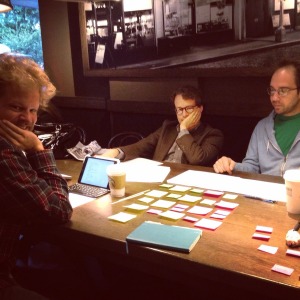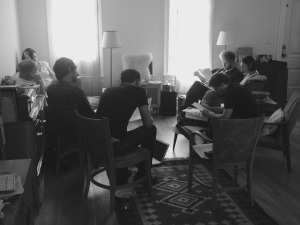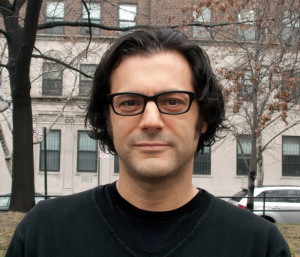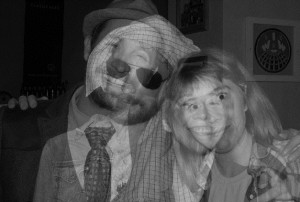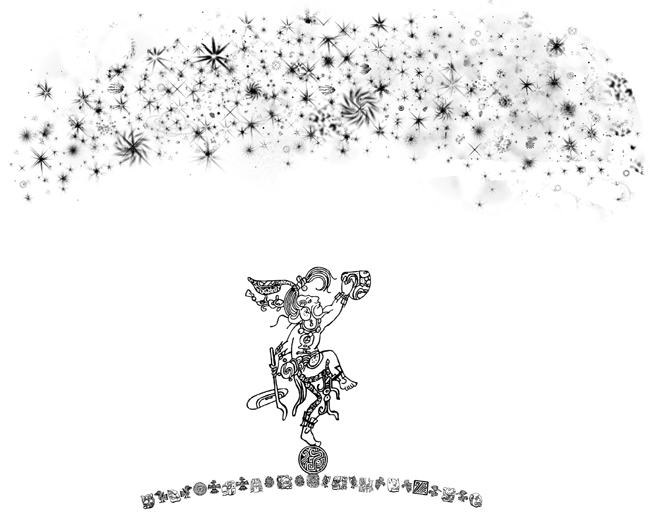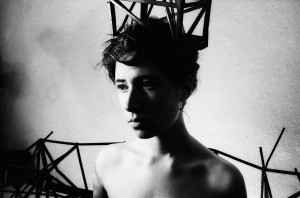
New Shorts composer, Mary Kouyoumdjian, writes this about her upcoming premiere of “I am a Fish:”
I have a rather deep and dark confession: I generally don’t enjoy going to the Opera. I know, I know… opera lovers, go ahead and banish me now. Something about sitting in a stiff seat for three hours while listening to a cast I can barely make out from the balcony sing in a language I don’t particularly understand about the same soppy love story being told over and over again feels redundant, alienating, and quite honestly – a little boring. So why did I take Experiments in Opera up on their invitation to write a “short” opera? Because EiO is aggressively breaking this mold I so strongly would like to push against while encouraging opera to move forward. This challenged me to think: “Well maybe today’s opera is something I could relate to?”
What resulted from this effort to write an opera a non-opera fanatic would enjoy is my piece I am a Fish, with a strange libretto written by an even more strange Hannis Brown (and I say that warmly). Brown writes:
I am a Fish is a one-act opera that explores the possibilities and confines of what we perceive as reality. John Herrington has an epiphany one afternoon, while verbalizing the sounds of words, that he may or may not be what he has always taken himself to be. He realizes that words are square pegs that fit in round holes. Is he a man because he calls himself a man? Or is he actually a woman? Perhaps he is a fish.
The text is pretty quirky and plays with the idea of being completely profound and mind-altering, to flirting with the idea of meaning absolutely nothing. When setting this text, what stood out to me was John Herrington’s psychological deterioration, and this fed my fascination with mental instability and portrait pieces, which are both common themes in much of my work. Also, Brown’s minimal text lent itself to repetition, looping, focusing on textures within words, and this immediately made me consider elements of loop-based hip hop and pop as an avenue to musically represent the text. I believe using elements of pop can help make an experimental piece more relatable, and, for me, it’s all about the accessibility while keeping things (hopefully) interesting.
All this said, there was one element that I tried to hold onto from traditional and classical opera – drama. When that fat lady sings over her tragically killed true love, you know even a tub of Ben & Jerry’s won’t do the trick; that woman is sad!!! And while there are no fat ladies in I am a Fish, you can bet that John Herrington’s character will be screaming out with dramatic intensity.
Below: A short excerpt from I am a Fish. Demo sang (amateurly) by yours truly, with the live performance to be sung (amazingly) by Seth Gilman.
 Experiments in Opera held its Fall Auction benefit on Saturday November 8, 2014 in Brooklyn. In addition to great art by the generous EiO community, we featured food from local purveyors and live performances by two of our regular singers. The event was a huge success, and as the pictures below demonstrate, lots of fun, too! We are well on our way to a big season of performances of new operas in the Winter and Spring. Thanks to all who were able to attend.
Experiments in Opera held its Fall Auction benefit on Saturday November 8, 2014 in Brooklyn. In addition to great art by the generous EiO community, we featured food from local purveyors and live performances by two of our regular singers. The event was a huge success, and as the pictures below demonstrate, lots of fun, too! We are well on our way to a big season of performances of new operas in the Winter and Spring. Thanks to all who were able to attend.









